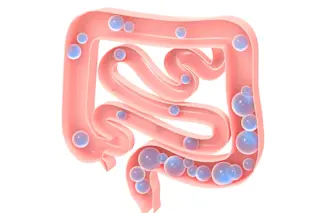Elderly people who ate one-third fewer calories for three months showed marked improvements on memory tests, according to a small new study that's just the latest evidence linking caloric restriction to good health.
There is growing interest in the potential benefits of calorie restricted diets, after research in animals suggested they might be able to improve lifespan and delay the onset of age-related disease. However, it is still not certain whether this would be the case in humans - and the the levels of "caloric restriction" involved are severe [BBC News].
The study involved 50 elderly people who ranged from normal weight to overweight. Members of one group were asked to cut their daily calorie consumption by 30 percent, primarily by reducing their portions, another group kept their calorie intake the same but ate more of the healthy, unsaturated fats found in fish and olive oil, while a final group ...













